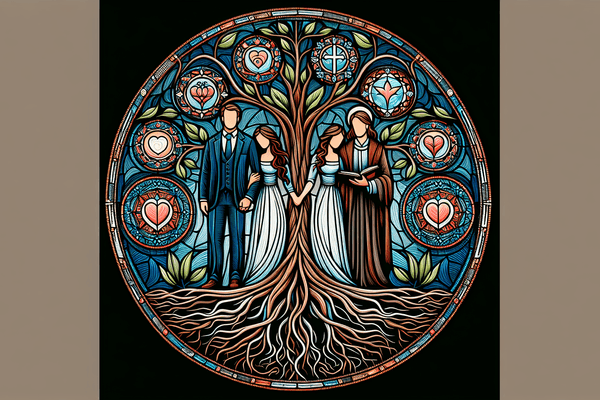Understanding Same-Sex Relationships in the Biblical Context
The topic of same-sex relationships is one that often prompts deep reflection and conversation among Christians. The apostle Paul, in 1 Corinthians 6:9-11, addresses behaviors considered sinful, including same-sex relations, advising believers to live a life pleasing to God. Yet, it is paramount to engage in these discussions with an open heart and a spirit of compassion, recognizing the complexity of human affection. For the Bible teaches us the fundamental call to love and be loved, a principle that transcends sexual orientation. Verses such as Romans 13:10 remind us that 'Love does no harm to a neighbor,' while Galatians 5:14 echoes the command to 'Love your neighbor as yourself,' emphasizing the essence of Christian love as inclusive and unconditional.
The Qualities of Love in Relationships
In the heart of the New Testament, 1 Corinthians 13:4-7 poetically outlines the attributes of love—patience, kindness, and truth. These qualities apply universally to all relationships, including romantic connections between women. The Bible encourages us to embody love that 'does not dishonor others, is not self-seeking, is not easily angered, keeps no record of wrongs.' Such a love aligns with the qualities of Christ himself, as conveyed in passages like Colossians 3:14, where love is described as the bond of perfect unity. As believers, we are called to mirror this love in every interaction, fostering relationships that are marked by genuine care, mutual respect, and a commitment to uplifting one another in truth and grace.
Finding a Good Husband According to Biblical Principles
For those seeking a life partner, the Bible offers wisdom that transcends time. In the quest for a good husband, one must lean on God's understanding, as Proverbs 3:5-6 advises, trusting in His plan and guidance. A potential husband's character is paramount, as 1 Peter 3:1-2 suggests, with emphasis on virtues that reflect a godly nature. Understanding the example of Jesus, whose life is a tapestry of teachings on love, servanthood, and righteousness, can inform our expectations of a partner. The concept of being 'equally yoked,' as discussed in 2 Corinthians 6:14, highlights the importance of shared faith and values. This spiritual harmony is a cornerstone for a strong, enduring marriage, one that is blessed by the Lord, as Proverbs 18:22 reveals, 'He who finds a wife finds what is good and receives favor from the LORD.'
The Blessing of Marriage in the Bible
The sanctity of marriage is woven throughout the biblical narrative, from the creation story, where God establishes it as a blessing, to the wisdom literature that praises the virtues of a loving spouse. Genesis 2:18, 24 sets the foundation by expressing God's intent for companionship, 'It is not good for the man to be alone.' In the Proverbs 31 woman, we find an ideal of marital partnership, where love and respect are mutual, and the virtues of the spouse bring honor to the household. The New Testament continues this theme, particularly in Ephesians 5:22-33, where marital love is depicted as a profound reflection of Christ's love for the church—a love marked by sacrifice, care, and unbreakable commitment.






